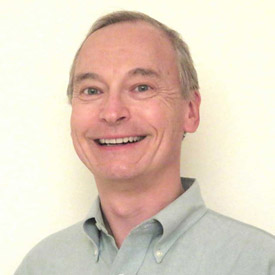News: LEDs
29 July 2025
UCSB’s Chris Van de Walle receives Welker Award
Chris Van de Walle, a distinguished professor in the Materials Department of University of California Santa Barbara (UCSB), has received the 2025 Heinrich Welker Award in recognition of his “development and application of computational methods to elucidate the properties of interfaces, defects, doping, polarization and loss mechanisms in compound semiconductors.”
Established in 1976, the Welker Award recognizes outstanding research in the area of III-V compound semiconductors. Past awardees include UCSB Nobel laureate Herbert Kroemer, dean of engineering Umesh Mishra, and laser expert Larry Coldren.
“For decades, he has contributed one significant finding after another, repeatedly contributing new understanding of key fundamental phenomena that affect performance of compound semiconductors, especially in the area of LED efficiency,” comments Mishra. “His theoretical investigations are reflected in any number of advanced electronic technologies that are taken for granted today but have been enabled by his research.”

Picture: Chris Van de Walle.
Van de Walle accepted the award at a ceremony in Banff, Canada, in conjunction with the 51st International Symposium on Compound Semiconductors (ISCS) and the 36th International Conference on Indium Phosphide and Related Materials (IPRM).
His achievements in computational physics and materials have previously been recognized with honors such as the Materials Theory Award from the Materials Research Society (MRS) and the Aneesur Rahman Prize for Computational Physics from the American Physical Society (APS). The Welker Award recognizes Van de Walle’s impact on materials technology.
“My work is fundamental in nature and, while I have always put great emphasis on making connections to actual materials and real-world applications, it wasn’t evident that this impact would be readily recognized,” says Van de Walle. “Receiving the Welker Award provides a wonderful confirmation that my efforts, enabled by many great students and postdocs, have been fruitful.”
Early in his career, Van de Walle developed a model that is still widely used for predicting heterojunction band offsets. In the 1990s he started making seminal contributions to the understanding of doping and defects in electronic materials. He challenged conventional wisdom by showing that impurities, rather than native defects, were responsible for unintentional doping of wide-bandgap semiconductors such as gallium nitride and zinc oxide. He subsequently addressed causes of efficiency loss in light emitters by developing accurate methods for calculating Auger–Meitner and Shockley–Read–Hall recombination. He has also been applying these techniques to understand and predict spin qubits and single-photon emitters for quantum information science.
Repeatedly recognized in Clarivate Analytics' annual list of ‘Highly Cited Researchers’, Van de Walle is a fellow of MRS, APS, the Institute of Electrical and Electronics Engineers, the American Vacuum Society (AVS), and the American Society for the Advancement of Science. He is a member of the National Academy of Engineering and has received the APS David Adler Award, the AVS Medard W. Welch Award, the John Bardeen Award from the Minerals, Metals & Materials Society, and a Vannevar Bush Faculty Fellowship.
UCSB’s Chris Van de Walle awarded APS’ 2025 Aneesur Rahman Prize for Computational Physics









